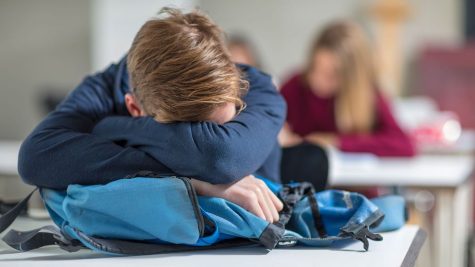Thriving, young minds, gifted with opportunities
A new bill, Senate Bill 328, promises fresh thinking and rested bodies. Or should we call it as we see it?
The real change occurring for adolescents is the sleep-less epidemic that’s unfolding right in front of them. Although the bill was intended to give most middle and high school students in California a more restful night’s sleep, it is actually leading to memory impairments. Students who used to go to bed earlier are now gifted with the opportunity to go to bed later. Although this is not the intention of the Bill, it is further enabling students to stay up later and later due to the slightly later start time in schools.
Sleep experts at the American Academy of Sleep Medicine recommend around 8-10 hours of sleep for the average middle and high school student. Although, when the opportunity to stay awake just a little longer arises, we can incidentally trick ourselves into unhealthy habits. We now find ourselves going to sleep later, and disregarding the connection it has to our inattention in classes. Suddenly, that extra 5 minutes of screen time before bed blurs into 30 minutes, then 1 hour, to 2 hours, then 3 hours, and leads to a failed math test.
I asked a sophomore student-athlete to get her insight into the late-starting schedule. “Being a basketball player, it’s really difficult, because you get home at like 7 -8 PM and you have school work…And I’m an AP student, and have two AP classes… so there’s no way I’m able to get my homework done before ten or twelve o’ clock.” Students like her are bombarded with the same workload as that of a non-student-athlete, but held to the same expectations.
Balancing a healthy sleep cycle, as well as rigorous classes and athletics, seems nearly impossible with this bill in place. She continues by saying, “I roughly get 5 hours of sleep.” 5 hours of sleep can be extremely damaging for teenagers, and may even lead to chronic sleep deprivation. Such is the case for many teens who need to stay on top of their school work and other activities. ..
impossible with this bill in place. She continues by saying, “I roughly get 5 hours of sleep.” 5 hours of sleep can be extremely damaging for teenagers, and may even lead to chronic sleep deprivation. Such is the case for many teens who need to stay on top of their school work and other activities. ..
As I was researching the effects of sleep deprivation, I stumbled upon an article that shares a similar stance on these restless teens. “The biological clock of teenagers is delayed because in some cases it appears to run at a slower pace, and because it responds differently to light cues that reset the clock daily. This combination leads to a sleep cycle that operates a couple of hours later than in an older adult – if an older adult feels the signals to fall asleep around 10 p.m. or 11 p.m., this won’t happen until midnight or later in a teenager,” “School start times and screen time late in the evening exacerbate sleep deprivation in US teenagers.” The Conversation, September 16th, 2022.
Overall, it boils down to a matter of safety. Tired teenagers are more likely to cause car crashes. Sleep deprivation in teens can lead to anxiety, depression, poor academic success, and far worse. While there is no evidence that our bodies can adapt to sleep deprivation, we can simply hope that the bill will be overturned for the sake of our generations’ future.
